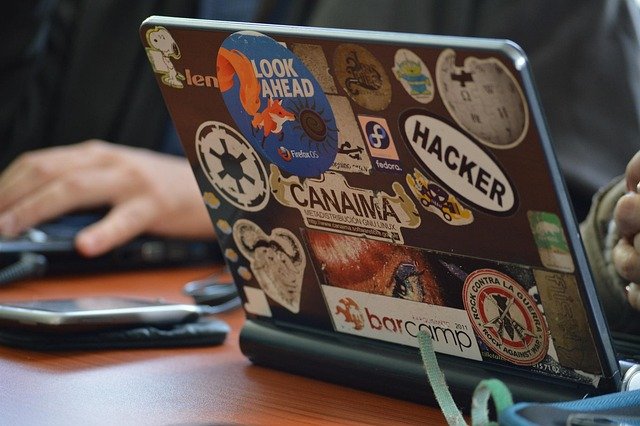Coding Bootcamps: Your Fast Track to a Tech Career
Coding bootcamps have emerged as a popular alternative to traditional computer science degrees, offering intensive, short-term training programs designed to equip students with practical programming skills. These accelerated learning experiences cater to individuals looking to break into the tech industry or upskill in their current roles. As the demand for skilled developers continues to grow, coding bootcamps provide a fast-track option for those seeking to launch a career in software development, web design, or data science.

What exactly are coding bootcamps?
Coding bootcamps are immersive, hands-on training programs that teach students the fundamentals of programming and software development. These programs typically last between 8 to 24 weeks and focus on practical, job-ready skills. Unlike traditional four-year computer science degrees, coding bootcamps emphasize real-world applications and current industry practices. Students learn through a combination of lectures, coding exercises, and project-based assignments, often culminating in a portfolio of work to showcase to potential employers.
How do online coding bootcamps differ from in-person programs?
Online coding bootcamps offer the same intensive curriculum as their in-person counterparts but with added flexibility. Students can attend classes from anywhere with an internet connection, making it easier to balance work, family, and other commitments. Online programs often feature live video lectures, interactive coding environments, and virtual collaboration tools. While in-person bootcamps provide face-to-face interaction and networking opportunities, online bootcamps have the advantage of attracting a diverse, global student body and often come at a lower cost due to reduced overhead expenses.
What skills can you learn in a full stack bootcamp?
Full stack bootcamps are comprehensive programs that cover both front-end and back-end development, providing students with a well-rounded skill set. Typical curricula include:
- Front-end technologies: HTML, CSS, JavaScript, and popular frameworks like React or Angular
- Back-end languages: Python, Ruby, Java, or Node.js
- Database management: SQL and NoSQL databases
- Version control: Git and GitHub
- Web architecture and API development
- Cloud deployment and DevOps basics
By covering the entire web development stack, these bootcamps prepare students to handle various aspects of web application development, from user interfaces to server-side logic and database management.
Are coding bootcamps worth the investment?
The value of coding bootcamps depends on individual goals and circumstances. For many, bootcamps offer a cost-effective and time-efficient alternative to traditional education. Successful graduates often report significant salary increases and improved job prospects. However, it’s important to note that bootcamps require intense dedication and self-motivation. The compressed timeline means students must be prepared to commit full-time to their studies and practice coding extensively outside of class hours.
What are some tips for choosing the right coding bootcamp?
When selecting a coding bootcamp, consider the following factors:
- Curriculum relevance: Ensure the program teaches in-demand languages and frameworks
- Instructor quality: Look for experienced professionals with industry connections
- Job placement support: Check the bootcamp’s career services and alumni network
- Learning format: Decide between in-person, online, or hybrid options based on your preferences
- Time commitment: Consider whether you can dedicate full-time hours or need a part-time option
- Cost and financing options: Compare tuition fees and explore payment plans or scholarships
- Alumni success stories: Research graduate outcomes and employment rates
Additionally, many bootcamps offer free introductory courses or trial periods, which can help you assess if the program is a good fit before making a significant financial commitment.
How much do coding bootcamps typically cost?
The cost of coding bootcamps can vary significantly based on factors such as program length, format, and location. To provide a clearer picture, let’s compare some popular coding bootcamps in the United States:
| Bootcamp Name | Format | Duration | Cost Estimation |
|---|---|---|---|
| Flatiron School | In-person/Online | 15 weeks | $15,000 - $18,000 |
| General Assembly | In-person/Online | 12 weeks | $14,950 - $15,950 |
| Hack Reactor | Online | 12 weeks | $17,980 |
| App Academy | In-person/Online | 16 weeks | $17,000 - $20,000 |
| Coding Dojo | In-person/Online | 14-32 weeks | $14,995 - $16,995 |
Prices, rates, or cost estimates mentioned in this article are based on the latest available information but may change over time. Independent research is advised before making financial decisions.
While these costs may seem substantial, many bootcamps offer various financing options, including income share agreements, deferred tuition plans, and partnerships with lending institutions. It’s crucial to carefully consider the return on investment and compare it with alternative education paths when making your decision.
In conclusion, coding bootcamps offer an accelerated path to acquiring in-demand tech skills. Whether you’re a career changer or looking to enhance your existing skill set, these intensive programs can provide the knowledge and practical experience needed to succeed in the competitive tech industry. By carefully researching and selecting the right bootcamp for your goals and learning style, you can set yourself up for a rewarding career in software development.
The shared information of this article is up-to-date as of the publishing date. For more up-to-date information, please conduct your own research.




